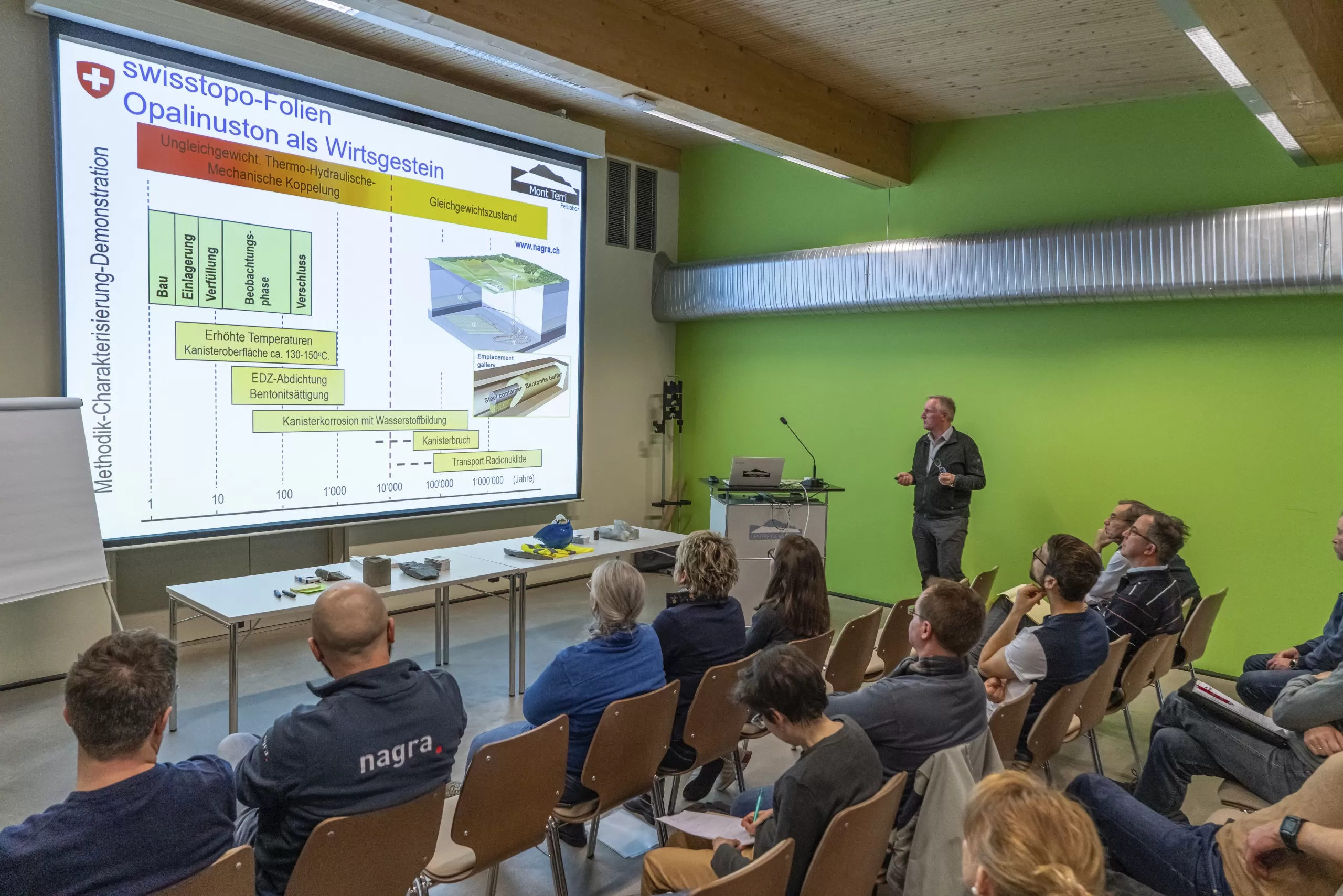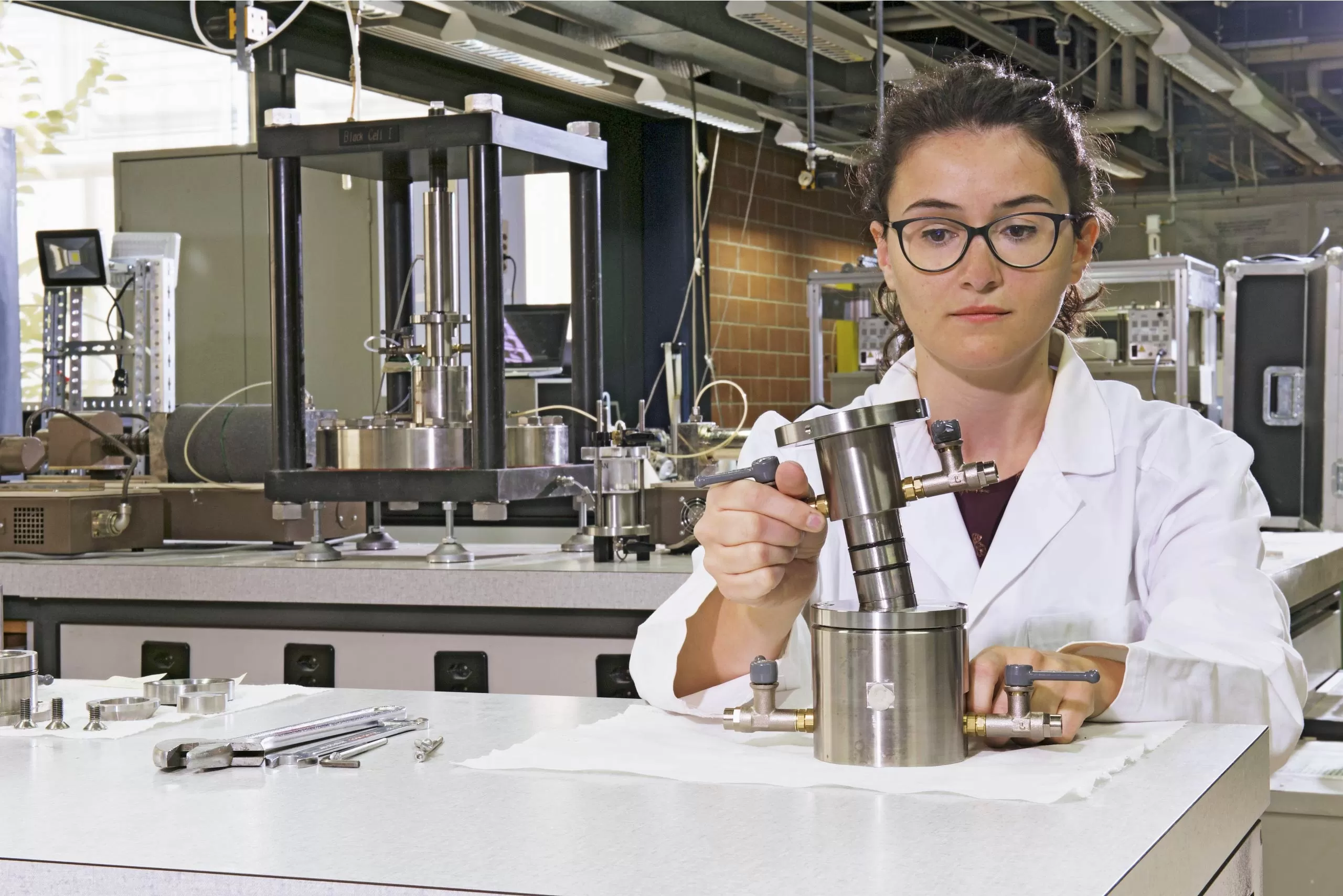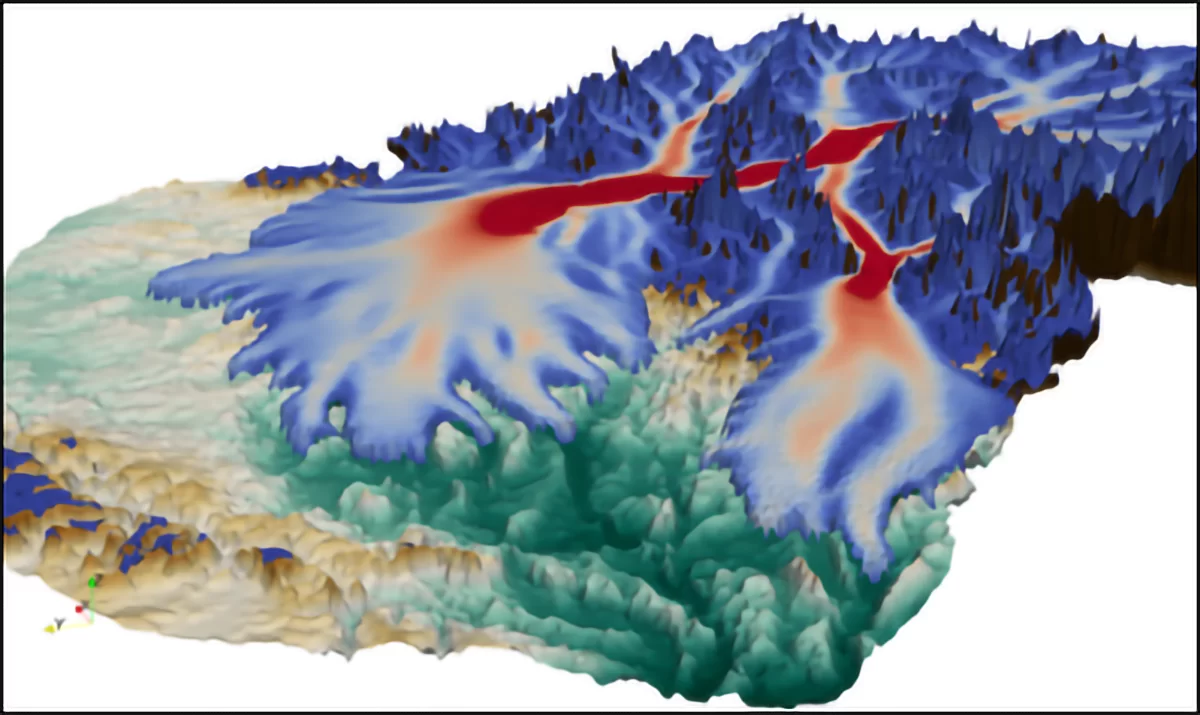
Joining forces to dispose of radioactive waste
The sustainable and safe disposal of radioactive waste is a global challenge. For this reason, Nagra exchanges information with national and international scientific institutes and conducts joint projects in the underground rock laboratories.
Collaboration beyond national borders
To exchange expertise, we organise conferences and participate in international organisations – in particular with the Organisation for Economic Co-operation and Development (OECD), the Nuclear Energy Agency (NEA) and the EU. Our specialists are also represented in several advisory groups of other waste management organisations – for example in Belgium, Canada, Finland, France and Germany.
When questions arise, we turn to our network which, aside from our partner organisations, includes the scientific community that reviews our publications. Working with leading specialists from all around the world ensures the high, internationally recognised quality of our work.
Laboratory studies provide import scientific groundwork
We also join forces in laboratory studies and modelling exercises. In Switzerland, for example, we carry out diffusion experiments in the Opalinus Clay together with the Paul Scherrer Institute (PSI) and the University of Bern. We also work with them on investigating the sorption of radionuclides in clay minerals. The results are helpful when developing models of the migration of radionuclides or geochemical models.

Samples from our deep boreholes are analysed at the Swiss Federal Institute of Technology Lausanne (EPFL) and the University of Bern. This allows us to learn more about the water contained in the pores of the Opalinus Clay. The Institute of Geological Sciences at the University of Bern has also analysed drill cores obtained from our Quaternary boreholes and dated the sediments they contain. This information allows us to determine when glacial advances occurred.
We have also conducted modelling exercises with the University of Zurich. When glacial advances will occur in the future depends on climate evolution. We work closely with the Oeschger Centre for Climate Research of the University of Bern on this topic.

The Swiss repository concept also foresees using steel disposal canisters to enclose the high-level waste. Together with other waste management organisations, Nagra is conducting experiments in a Canadian research centre to measure the extremely slow corrosion rate of steel.
Our work has to meet high technical and scientific standards. To reach this goal, our specialists work not only with external scientists but, for many years, have also been collaborating with independent, external advisors, whose scientific expertise helps us both to scrutinise our work and to keep learning.